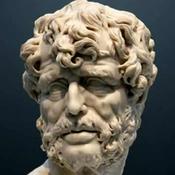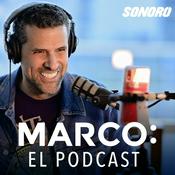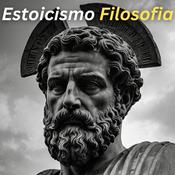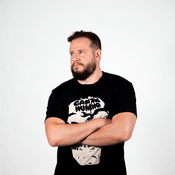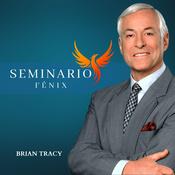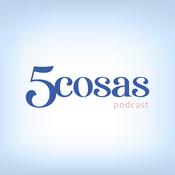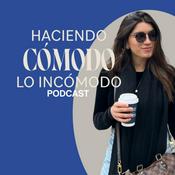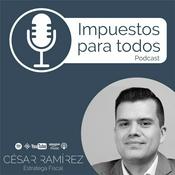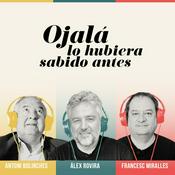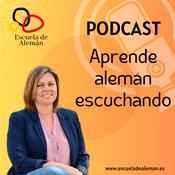Overthink
Ellie Anderson, Ph.D. and David Peña-Guzmán, Ph.D.
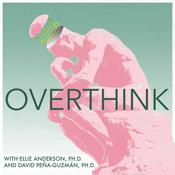
Último episodio
163 episodios
- What does it mean to be spontaneous? In episode 161 of Overthink, Ellie and David get spontaneous. They look at Aristotle’s theory of spontaneous generation, at spontaneity’s role in politics, and at the dark side of spontaneity. How do different cultures and physical spaces enable or inhibit spontaneity? What is the relationship between spontaneity and human freedom? And is Lenin correct in arguing that leftists need to resist spontaneity in political organizing? In the Substack bonus segment, your hosts think through the relationship between spontaneity and habit, how spontaneity plays into the recording of Overthink episodes, and the habitual spontaneity of those with Tourette’s Syndrome.
Works Discussed:
Aristotle, Physics
Lucy Cooke, The Truth About Animals
Jonathan Gingrich, “Spontaneous Freedom”
Immanuel Kant, Critique of Pure Reason
Vladimir Lenin, What is to Be Done?
Enjoy our work? Support Overthink via tax-deductible donation: https://www.givecampus.com/fj0w3v
Join our Substack for ad-free versions of both audio and video episodes, extended episodes, exclusive live chats, and more: https://overthinkpod.substack.com/
See Privacy Policy at https://art19.com/privacy and California Privacy Notice at https://art19.com/privacy#do-not-sell-my-info. - What does it mean to say that the good life is a life of pleasure? Although you might think of champagne and caviar, Hellenistic philosopher Epicurus actually considered the good life to be more about appreciating the simple things in life and letting go of the things that bring us only temporary pleasure but lead to pain in the long run. Why has Epicureanism so often been misrepresented, and what did Epicurus really say? In episode 160 of Overthink, Ellie and David investigate the teachings of Epicurus in The Epicurus Reader. They explain his four-part cure on how to life a better life, including why we shouldn't be worried about death. They also offer critiques on his view of justice and its lack of application to political life. How can attaining ataraxia lead us to achieving eudaimonia and living the good life? In the Substack bonus segment, your hosts elaborate on whether or not Epicurus’s argument that we should not fear death is convincing.
Works Discussed:
Brad Inwood and Lloyd P. Gerson, The Epicurus Reader: Selected Writings and Testimonia
Enjoy our work? Support Overthink via tax-deductible donation: https://www.givecampus.com/fj0w3v
Join our Substack for ad-free versions of both audio and video episodes, extended episodes, exclusive live chats, and more: https://overthinkpod.substack.com/
See Privacy Policy at https://art19.com/privacy and California Privacy Notice at https://art19.com/privacy#do-not-sell-my-info. - What does it mean to be ill? In episode 159 of Overthink, Ellie and David discuss illness. They explore how illness has been mythologized, how it may alienate us from our bodies, and how it impacts social relationships. Is science the solution to the mythologization of illness, or is the scientific model of illness its own form of mythology? How should we conceptualize illness? Is it as a “deviation” from a norm? And if so, what norm? Finally, what can we learn about illness from a phenomenological approach that centers the patient’s first-person experience? In the Substack bonus segment, your hosts think about the distinction between the mental and the physical in connection to illness and the intersection between mind and body in illness.
Works Discussed:
Georges Canguilhem, The Normal and the Pathological
Havi Carel, Illness: The Cry of the Flesh,
Susan Sontag, Illness as Metaphor
SK Toombs, The Meaning of Illness: A Phenomenological Account of the Different Perspectives of Physician and Patient
Enjoy our work? Support Overthink via tax-deductible donation: https://www.givecampus.com/fj0w3v
Join our Substack for ad-free versions of both audio and video episodes, extended episodes, exclusive live chats, and more: https://overthinkpod.substack.com/
See Privacy Policy at https://art19.com/privacy and California Privacy Notice at https://art19.com/privacy#do-not-sell-my-info. - Why does talking about politics so often feel useless? In episode 158 of Overthink, Ellie and David speak with Sarah Stein Lubrano, author of Don’t Talk About Politics: How to Change 21st-Century Minds, about why discourse is not the solution to political polarization. They discuss the problems with thinking about political opinions as a "marketplace of ideas," why public debates don't change our political views as much as personal relationships, and how social atrophy weakens citizenship. What is the value of political protests? How does the ideal of debate perpetuate politics as war? And should we re-imagine social media platforms like X to encourage productive dialogue, or log off of them completely? In the Substack bonus segment, your hosts dive deeper into the politics of digital spaces and question where podcasting fits into Lubrano’s critique of how we discuss politics.
Works Discussed:
Sarah Stein Lubrano, Don't Talk About Politics: How to Change 21st-Century Minds
Enjoy our work? Support Overthink via tax-deductible donation: https://www.givecampus.com/fj0w3v
Join our Substack for ad-free versions of both audio and video episodes, extended episodes, exclusive live chats, and more: https://overthinkpod.substack.com/
See Privacy Policy at https://art19.com/privacy and California Privacy Notice at https://art19.com/privacy#do-not-sell-my-info. - Should we be sympathetic towards manipulators? In episode 157 of Overthink, Ellie and David talk about manipulation. They discuss what makes up a manipulative personality, why manipulators see social interaction as inherently combative, and what you can do when you find yourself entangled with a manipulator. They also explore what Niccolo Machiavelli tell us about the role of manipulation in politics. Should political leaders always be kind? Or, as Machiavelli says, do they need to learn to “be bad”? And what can we say about manipulation outside of politics? Does manipulative behavior require awareness and intention? Are all forms of manipulation inherently bad? And where do we draw the line between manipulation and other types of social influence? In the Substack bonus segment, your hosts discuss how manipulators perform on the ultimatum game and whether philosophy is the only form of non-manipulative discourse.
Works discussed:
Anne Barnhill, “How philosophy might contribute to the practical ethics of online manipulation”
Robert Greene, 48 Laws of Power
Niccolo Machiavelli, The Prince
George Simon, In Sheep’s Clothing: Understanding and Dealing with Manipulative People
Enjoy our work? Support Overthink via tax-deductible donation: https://www.givecampus.com/fj0w3v
Join our Substack for ad-free versions of both audio and video episodes, extended episodes, exclusive live chats, and more: https://overthinkpod.substack.com/
See Privacy Policy at https://art19.com/privacy and California Privacy Notice at https://art19.com/privacy#do-not-sell-my-info.
Más podcasts de Educación
Podcasts a la moda de Educación
Acerca de Overthink
The best of all possible podcasts, Leibniz would say. Putting big ideas in dialogue with the everyday, Overthink offers accessible and fresh takes on philosophy from enthusiastic experts. Hosted by professors Ellie Anderson (Pomona College) and David M. Peña-Guzmán (San Francisco State University).
Sitio web del podcastEscucha Overthink, BBVA Aprendemos juntos y muchos más podcasts de todo el mundo con la aplicación de radio.net

Descarga la app gratuita: radio.net
- Añadir radios y podcasts a favoritos
- Transmisión por Wi-Fi y Bluetooth
- Carplay & Android Auto compatible
- Muchas otras funciones de la app
Descarga la app gratuita: radio.net
- Añadir radios y podcasts a favoritos
- Transmisión por Wi-Fi y Bluetooth
- Carplay & Android Auto compatible
- Muchas otras funciones de la app


Overthink
Escanea el código,
Descarga la app,
Escucha.
Descarga la app,
Escucha.


